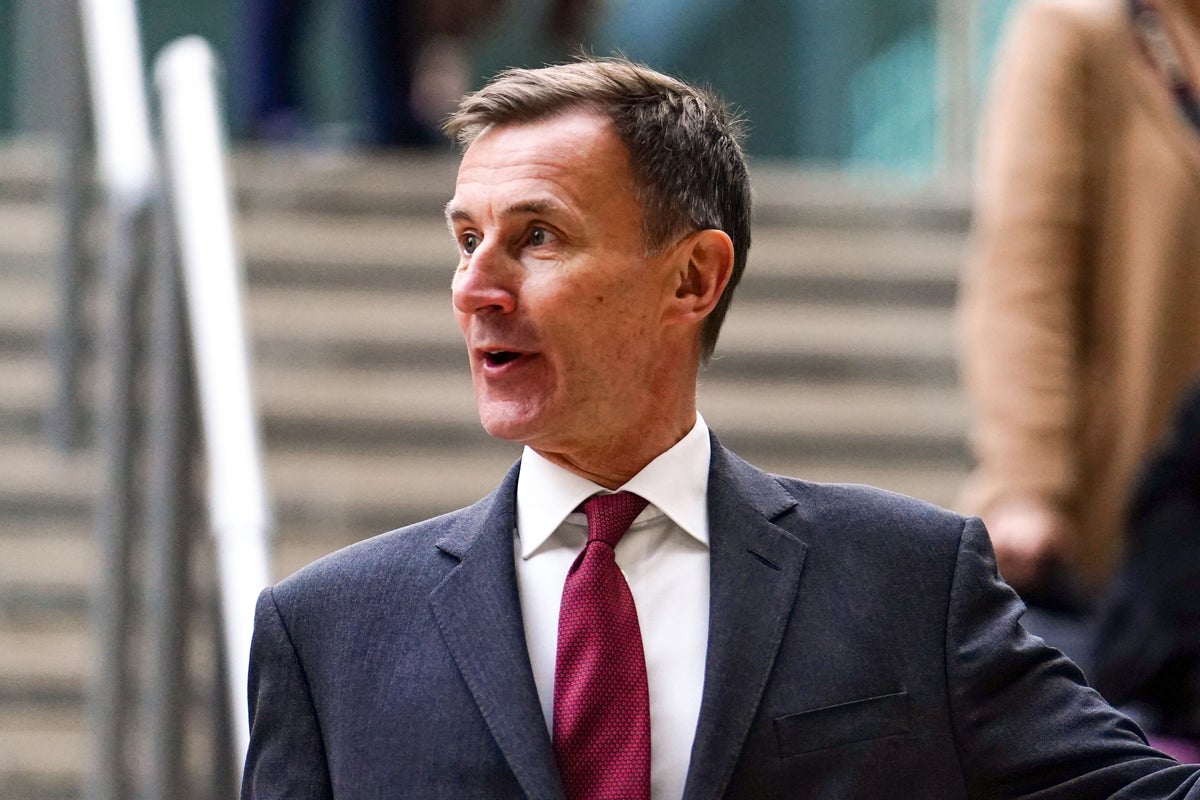
Chancellor Jeremy Hunt could afford to give public sector workers a bigger pay rise at next month’s Budget month by scrapping plans for a fuel duty freeze, according to a leading think tank.
The Institute for Fiscal Studies (IFS) said short-term savings from the energy support scheme looking less costly than first feared would not alone pave the way for public sector pay to keep pace with inflation.
But Mr Hunt could dig deep into government pockets to help fund a one-off bonus for public sector workers in a bid to avert intensifying industrial action, according to the IFS report – with the UK on course to borrow £30bn less than forecast this year.
And IFS director Paul Johnson said a pay rise averaging 5.5 per cent – which would add around £5bn to the cost of the next settlement – could be paid for by ditching the planned fuel duty freeze, worth around £6bn.
Mr Johnson said Mr Hunt had a “straight choice” between helping drivers with fuel costs or helping public sector workers during the cost of living crisis.
“There is a straight choice there, £6bn goes quite a long way, if you are spending that on public sector pay rather than cutting fuel duty,” the expert said.
The IFS chief also said the risk that adding another 2 per cent or 3 per cent to planned public sector pay rises would have an impact on inflation was “extremely small”.
The think tank’s pre-Budget assessment said Mr Hunt may look to extend the current energy support scheme, which would allow households to benefit from the current £2,500 cap for longer before it increases to £3,000 a year.
It calculated that extending the current level of energy support for households and businesses for another three months – as suggested by Labour – would cost the government around £2.7 billion.
Mr Johnson said the move would be a “very straightforward thing for them to do” and comes amid mounting calls for the government to scrap plans to make support less generous for households and businesses from April.
It comes as energy secretary Grant Shapps told The Times that he was “very sympathetic” to calls to cushion people from the 20 per cent rise in energy bills coming in April.
“The chancellor and I are working very hard on it. I’m very sympathetic to making sure that we protect [people]. We’re looking at this very, very carefully,” he said.
The IFS pre-Budget report revealed that the Government is on track to borrow around £31bn less than forecast by the Office for Budget Responsibility (OBR) in 2022-23 and some £25bn in 2023-34.
This is largely as a result of an £11bn saving as the energy support schemes are costing less, thanks to sharp falls in wholesale energy prices in recent months.
The latest Ofgem announcement on the energy price cap price – cut by almost £1,000 from the current £4,279 per year to £3,280 for the average household – will mean the cost of government energy support will plunge to just £1.4 billion in the 2023-24 financial year, according to the Resolution Foundation.
The Bank of England has also recently upgraded its outlook for the UK economy, predicting a shallower recession that initially feared, but with anaemic growth for following years.







